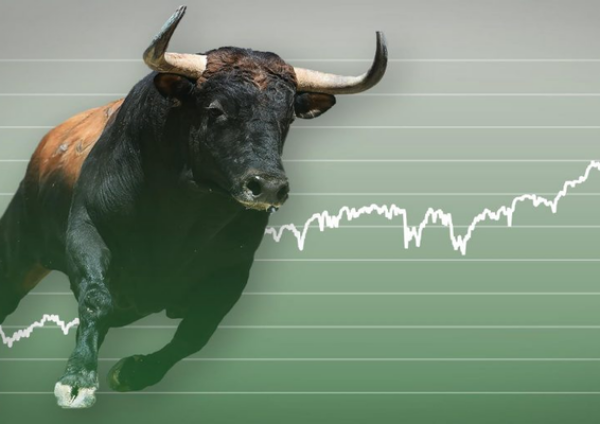Crypto Tax Free Countries 2025
This article will discuss crypto tax free countries, as with the increasing popularity of cryptocurrency, many people are looking to expand their investment portfolio and take advantage of the potential for greater profits.
Understanding and investing in the most promising cryptocurrencies could be the key to success in the ever-evolving world of digital assets.
But with any booming industry, governments will always want to profit.
Some of cryptocurrency tax free countries include:
- Monaco
- United Arab Emirates
- Singapore
Crypto income tax is the taxation of earnings generated from cryptocurrency-related activities, such as selling, trading, mining, or receiving cryptocurrencies as payment. Taxpayers must report their cryptocurrency income and gains accurately, and the tax treatment varies from country to country, subjecting gains to capital gains or regular income tax rates.
Cryptocurrency capital gains tax is imposed on profits earned from the sale or exchange of cryptocurrencies. If someone sells or trades their cryptocurrencies for a higher price than the primary purchase price, the difference representing the capital gain may be subject to taxation.
✅ Gibraltar is known for its favorable tax policies extending to digital assets. Cryptocurrency investments are not subject to VAT or capital gains taxes in Gibraltar. However, a 10% corporate tax rate on earnings also applies to crypto trading.
❌ Individuals who trade or invest in cryptocurrency and want to benefit from a less strict tax system can choose to reside in Monaco. The Principality’s tax laws state that residents within its borders are exempt from paying taxes, a policy that has been in effect since 1869, making Monaco one of tax free countries for cryptocurrency.
So with the growth of the cryptocurrency industry, governments across the world have started to impose taxes on several associated activities such as digital assets investments and trading.
Government taxes make it challenging for investors and traders to make profits. They also reduce the returns on investment.
The good news is that there’re still some countries globally that offer tax-free environments for crypto investments and trading.
Let’s take a look at the top tax free countries for crypto and learn more about cryptocurrency income tax and capital gains.
Crypto Tax-Free Countries
If you’re thinking of trading or investing in a country where you’ll not pay taxes on your crypto investments, one of these countries can be a perfect option.
Germany
Germany is well known for imposing the highest taxes. However, it has an interesting approach regarding cryptocurrencies.
The Government of Germany doesn’t consider cryptocurrencies as capital assets. That means you won’t be taxed even a single cent if you decide to buy and hold your digital assets for more than one year and sell them.
The main word here is” holding” your cryptocurrency. If you decide to sell your digital asset before a year elapses, you’ll be taxed unless your earnings are below £600.
Also, Germany has a unique approach in terms of taxing stacked cryptocurrency. If you stake your cryptocurrency to earn more income, your digital asset will be taxed, provided you have held it for less than a decade. Once a decade elapses, your stacked digital asset will be tax-free. You’ll also be taxed if:
✔️ You’re being paid in cryptocurrency
✔️ When mining crypto.
Malta
Malta has been dubbed the Blockchain Island, and it isn’t by mistake. The capital gains tax isn’t levied in Malta’s territory on long-term crypto transactions.
Also, it isn’t VAT paid. But if your transactions take place within the same day, the Government of Malta will tax the gains under income tax.
The amount of tax you’ll pay depends primarily on the tax system in place. If you’re lucky to interact with the right system, you can pay between as low as 3% and zero on your crypto gains.
That’s why most investors consider Malta a cryptocurrency tax haven country.
Gibraltar
Gibraltar is well-known for its tax easiness, which also applies to digital assets. Cryptocurrency investments aren’t subject to VAT or capital gains.
These taxes do not exist in Gibraltar’s territory. However, Gibraltar has in place a 10% corporate tax rate on earnings and also applies to crypto trading.
Singapore
Business and individual investors aren’t subject to capital gains tax in the country. That means no tax will be liable when selling or trading digital assets.
Singapore regards digital assets as “intangible properties” for tax purposes. Due to this, personal investors using cryptocurrencies on services or goods are exempted from taxes.
The Government of Singapore views this as a barter trade instead of a payment. But businesses receiving payments in crypto are eligible for paying income tax.
Also, if a business’s core service is in cryptocurrency trading, it’s liable for income tax.
United Arab Emirates
The United Arab Emirates has a zero-taxation system, and that’s why it’s a favourite destination for high-net-worth residents. Even businesses are starting to pick UAE and exciting Dubai as their tax abode.
The sale of digital assets in the United Arab Emirates is completely exempt from taxation. What is more?
The United Arab Emirates Government goes a step further and encourages crypto users to use it when purchasing high-value assets like luxury cars and real estate.
Monaco
Cryptocurrency traders and investors looking for less demanding tax regimes can establish their residence in Monaco.
The Principality’s tax system provides that individuals within its territory pay no tax, a rule that has been in place since 1869.
If Monaco was already a perfect destination before, it’s currently attractive for digital asset owners since its system has adapted the tax exemption regime to the digital asset environment. The sale of cryptocurrencies in Monaco isn’t taxed at all.
What is Crypto Income Tax?
Income tax isn’t the most exciting part of cryptocurrency investing.
But if you’re a digital asset investor or trader, you need to understand how crypto taxes work. And that’s why it’s important to know what crypto income tax is.
Several ways are available when it comes to owing taxes on digital assets. Even trading one crypto to another can attract tax.
Also, you can pay taxes if you earn a profit on digital assets like NFTs (non-fungible tokens).
Taxes are due after a trade, a sale or disposal of crypto if there is a gain. Crypto income tax is obtained when a digital asset gain is taxed.
Additional events that can prompt you to pay taxes on crypto and other digital assets as taxable income include the following:
✔️ Mining
✔️ Trading
✔️ Receiving payment or reward
✔️ Using it for payment of services or goods
✔️ Getting cryptocurrency from a hard fork
✔️ Earning other income, such as getting perks by holding certain digital assets
✔️ Receiving an airdrop
Capital Gains Tax on Crypto
Most countries globally classify cryptocurrencies and other digital assets as “property”. That means they are eligible for capital gains tax just like real property or stocks.
Crypto capital gains tax occur when investors sell cryptocurrencies for a higher amount than their initial investment.
In simple terms, if you make a profit from a cryptocurrency or a non-fungible token, you activate a taxable event in the eyes of your country’s government.
In most cases, anyone purchasing, selling or holding a digital asset is considered to be undertaking an investment activity. And that means they’re subject to cryptocurrency capital gains tax.
Disposing off digital assets will trigger a taxable event, with any disposal proceedings’ value matched against purchases in a predetermined order:
✔️ Digital assets acquired on the same day
✔️ Digital assets acquired in the next 30 days
✔️ The pool (the average cost of an unmatched crypto asset)
Investors pay capital gains tax on their total earnings above the yearly tax-free allowance. Keep in mind it’s vital to know the rules and rates that apply once you receive a digital asset, sell, trade or hold for a given time.
Hope you found some useful information in our article on Crypto tax free countries!











